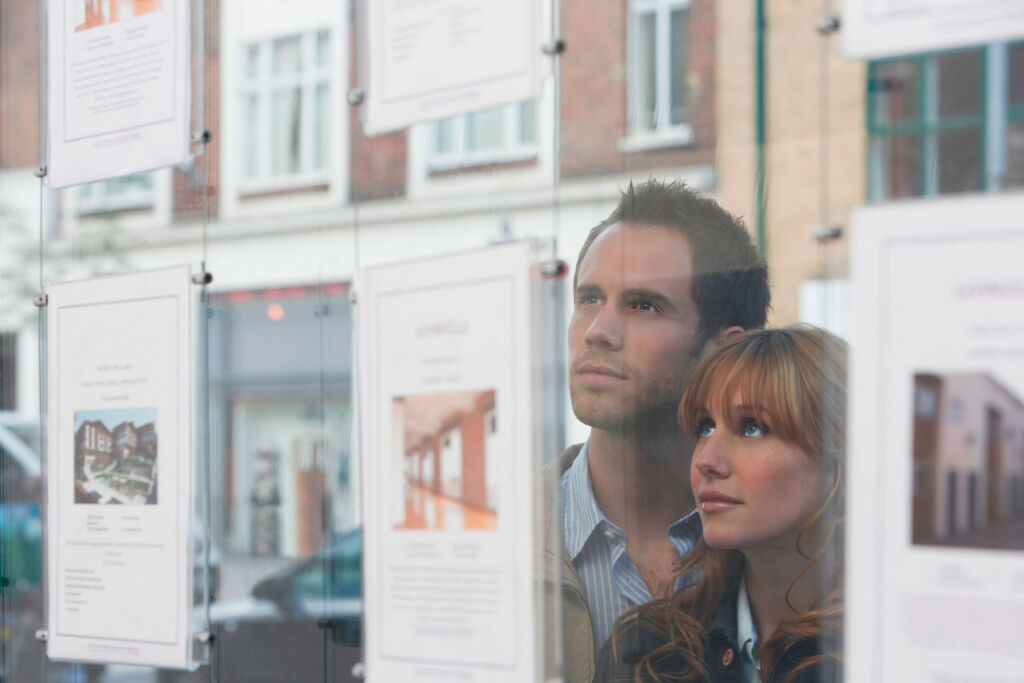
Property purchasing specialists, HBB Solutions, have conducted research into the UK property market and discovered that almost half of the pandemic property purchases in the UK could’ve been subject to a down valuation.
There is an endless list of things that can derail a property purchase and sale, and one of them is down valuations. Make no bones about it; the UK property market is hot, and with the mass of buyers and inflated prices comes the dreaded down valuations. New research has shown that almost half of the pandemic property transactions have suffered from this, and in this property feature, we look at the reasons why?
To some, why the UK property prices are continuing to rise is still a mystery. There are, of course, some obvious reasons, such as little or no interest available on savings, the fear of missing out factor and the one thing most people don’t like to mention, to make money. If we were to rewind the clock two years, many pundits predicted a catastrophic fall in property prices when the pandemic first hit.
In hindsight, it was a reasonable assumption. I had a slightly different view and thought that anywhere around a 2% rise was more likely as people would want to escape the built-up urban areas; we were all wrong.

In the two years following our predictions, UK property prices have skyrocketed, and there’s little holding back. I believe the UK government is leaving the property market alone for an obvious reason; the wealthier people feel, the more likely they are to spend. Let’s face facts; if you own a property and discover it has risen in price by £20,000 in a year, it has a positive psychological effect.
What is a down valuation?
Down valuations occur when a surveyor acting on behalf of a mortgage lender considers a property worth less than the buyer and seller’s agreed price. The result of this is the lender will not offer the full amount required by the buyer, and, as a result, the seller will often need to lower their asking price to proceed with the transaction.
Down valuations generally occur when the seller enters the market with an optimist asking price, to begin with, if they are tempted by an agent claiming their home is worth more in order to win their business, if something comes to light during the survey that reduces the value of the property, or if the lender urges the surveyor to tread with caution because they themselves are worried about over-inflated market conditions.
Using the latest data available on the frequency of down valuations within the property market, HBB Solutions looked at how many property sales were impacted based on the number of transactions completed since January 2020.
Pandemic property down valuations
Welsh home sellers are most likely to see their property downvalued, with industry figures showing that 63% of all property transactions will hit this pricing snag during their survey stage.
The South East sits top of the table for most pandemic property down valuations, with HBB estimating that 129,394 of the 294,077 homes to have sold since the start of 2020 will have experienced this.
The North West is thought to have seen the second-largest volume of down valued property transactions at 118,694, and London is the only other region to breach the 100,000 mark (107,168).
Northern Ireland is estimated to have seen the lowest number of pandemic property down valuations. However, HBB Solutions still estimates almost 27,000 transactions will have been subject to a price reduction by surveyors.

What can you do about a down valuation?
As a seller, a down valuation doesn’t always mean your home isn’t worth what you think. Another buyer using a different lender may agree with the price you’ve set, although this requires repeating the process of finding a buyer.
You can choose not to budge and leave the ball in the buyer’s court for them to find a solution, or you can rectify any issues that have been highlighted as the reason for the down valuation.
Alternatively, you can renegotiate on price, which is often the quickest path to a resolution, or you can play the long game and wait for house prices to rise so that the down valued price increases in line with your current expectation.
As a buyer, if the seller won’t budge, you could try a different lender and ask them to carry out the survey. If this fails and the seller refuses to negotiate, you could take out a loan to cover the shortfall or increase your deposit in order to negate the cost of the down valuation.
Managing Director of HBB Solutions, Chris Hodgkinson, said, “Down valuations can be an extremely frustrating part of buying or selling a property, especially when both buyer and seller have agreed on a price they are both happy with, only for the sale to be scuppered by a third party opinion. Of course, in many cases, these reductions are justified, but in a market running as hot as we’ve seen during the pandemic, it’s not unheard of for lenders to influence this decision due to their own fears around escalating market values.
Unfortunately, not a great deal can be done to immediately remedy the issue other than the buyer coughing up or the seller reducing the asking price. So it’s hardly surprising that many sales, and the wider chains they sit within, can be jeopardised due to a down valuation.”
Data Tables
Property transaction levels sourced from Gov.uk – UK HPI
The latest down valuation statistics sourced from BankRate
Download Data Tables
Read more property news, guides and features here.
![]()




You must be logged in to post a comment.